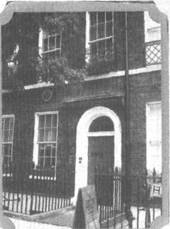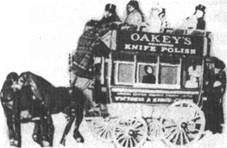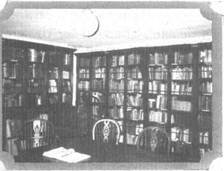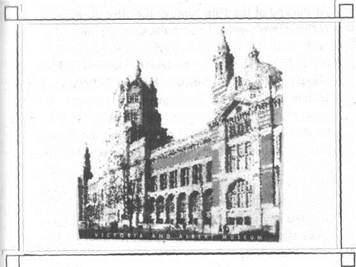
КАТЕГОРИИ:
Архитектура-(3434)Астрономия-(809)Биология-(7483)Биотехнологии-(1457)Военное дело-(14632)Высокие технологии-(1363)География-(913)Геология-(1438)Государство-(451)Демография-(1065)Дом-(47672)Журналистика и СМИ-(912)Изобретательство-(14524)Иностранные языки-(4268)Информатика-(17799)Искусство-(1338)История-(13644)Компьютеры-(11121)Косметика-(55)Кулинария-(373)Культура-(8427)Лингвистика-(374)Литература-(1642)Маркетинг-(23702)Математика-(16968)Машиностроение-(1700)Медицина-(12668)Менеджмент-(24684)Механика-(15423)Науковедение-(506)Образование-(11852)Охрана труда-(3308)Педагогика-(5571)Полиграфия-(1312)Политика-(7869)Право-(5454)Приборостроение-(1369)Программирование-(2801)Производство-(97182)Промышленность-(8706)Психология-(18388)Религия-(3217)Связь-(10668)Сельское хозяйство-(299)Социология-(6455)Спорт-(42831)Строительство-(4793)Торговля-(5050)Транспорт-(2929)Туризм-(1568)Физика-(3942)Философия-(17015)Финансы-(26596)Химия-(22929)Экология-(12095)Экономика-(9961)Электроника-(8441)Электротехника-(4623)Энергетика-(12629)Юриспруденция-(1492)Ядерная техника-(1748)
Literature of the
|
|
|
|
VIII
I
 | |||||||||||||||
 | |||||||||||||||
 | |||||||||||||||
 | |||||||||||||||
 | |||||||||||||||
 | |||||||||||||||
 | |||||||||||||||
 | |||||||||||||||
greatest realist of England Charles Dickens. In his J "Christmas Tales" the author revealed the atmosphere of Victorian traditions and created the fairy image of a ' beautiful family party.
Charles Dickens was popular in his time, he published his stories and novels in his own magazines. Furthermore, Dickens was a successful dramatist who staged the scenes from his works while travelling around the world. Thus the writer emphasized the importance of the novel, turning it into a kind of theatre.
Nowadays people know the name of Charles Dickens as well as they know the name of William Shakespeare.
Charles Dickens (1812-1870)

|
Charles Dickens was born in ' Portsmouth on 7th of February, 1812 into a middle-class family of a civil servant John Dickens who was an open-hearted and kind man. Charles spent his childhood in the atmosphere of love and friendship, though his mother, Elizabeth, was a snobbish, demanding, rather hard and rather silly.
The happiest years were between 1817 and 1822, when John Dickens held a good post in the Chatham Dockyard. It was an enchanted time for little Charles.
When Dickens was eleven he went to London, because his father secured the position of a clerk there. Very soon Charles realized that his happy childhood had been left behind, after his family moved in 1822 to London. Their household consisted of Mr and Mrs Dickens, their five children, a servant and James Lamert, a relative by marriage. The family lived in poverty. Charles schooling came to an end and he had to continue to contribute to the family funds. James Lamert found him a job in a warehouse for several shillings a week. Meanwhile, John Dickens was put into prison for debts. The debts were great. When John Dickens was released, he decided to take his son Charles away from the warehouse, but Charles's mother didn't want to lose the money her son was earning. Charles Dickens could never forgive her. When Dickens was fifteen he became a lawyer's clerk. In 1832, having learned shorthand, Charles secured a full time position in "The Mirror of Parliament". He wrote sketches and signed
 | |||
 | |||
 them "Boz". It was his nickname. As a result, his firi book "Sketches by Boz" was published on his 24и birthday. The sketches were drawn by a sharp-еуеЯ reporter, who had travelled covering a lot of eventsB The next two years Charles Dickens devoted to nisi famous "Pickwick Papers", the publication whicjB brought him fame and money, and the opportunity Щ marry Kate Hogarth, the daughter of a colleague, hi "Pickwick Papers" he mocked at the English court Я Law and Parliamentary elections. At 25, in 1837, j Charles Dickens was already famous. It was a succese ful period of his life: his first son was born, his family moved out of lodgings into a twelve-room house, and he met John Forster, who became his best friend and ! his official biographer after his death in 1870. During the next six years of writing Charles Dickens observed life and attacked debtors, prisons, schools and work-l houses. The inhabitants of the workhouses had to work from morning till night in misery and poverty. Dickens learned more from life than from books, and he wrote about the social evils and injustice, about many home less "hunger-worn outcasts" in the dark bleak streetje In his "Oliver Twist", written in 1838, Dickens treated the horrors of workhouses and crime. The conditions on Yorkshire boarding school were described in "Nicholas Nickleby" (1839).
them "Boz". It was his nickname. As a result, his firi book "Sketches by Boz" was published on his 24и birthday. The sketches were drawn by a sharp-еуеЯ reporter, who had travelled covering a lot of eventsB The next two years Charles Dickens devoted to nisi famous "Pickwick Papers", the publication whicjB brought him fame and money, and the opportunity Щ marry Kate Hogarth, the daughter of a colleague, hi "Pickwick Papers" he mocked at the English court Я Law and Parliamentary elections. At 25, in 1837, j Charles Dickens was already famous. It was a succese ful period of his life: his first son was born, his family moved out of lodgings into a twelve-room house, and he met John Forster, who became his best friend and ! his official biographer after his death in 1870. During the next six years of writing Charles Dickens observed life and attacked debtors, prisons, schools and work-l houses. The inhabitants of the workhouses had to work from morning till night in misery and poverty. Dickens learned more from life than from books, and he wrote about the social evils and injustice, about many home less "hunger-worn outcasts" in the dark bleak streetje In his "Oliver Twist", written in 1838, Dickens treated the horrors of workhouses and crime. The conditions on Yorkshire boarding school were described in "Nicholas Nickleby" (1839).
|
|
|
It was there, in 48, Doughty Street, London where] Charles Dickens wrote his "Pickwick Papers", "Oliver] Twist" and "Nicholas Nickleby". Charles Dickens I lived at 48, Doughty Street from April 1837 to December 1839, not a long period but an important one,! because it was here that he really secured his reputa-j tion. It is, moreover, the only London house still stand-1
mg that this great London writer lived in for any length ■ time.

|
Charles Dickens was a very thoughtful writer. There w;is a very important element in his work which is ■bove all the others. It is his power of characterization. Most of the people in his stories are in a sense "types", they are based on real-life people, though he gave them an independent vitality. We feel we know | Mr Pickwick, Fagin or Mrs Nickleby. This fact proves that Charles Dickens has contributed to the universal imagination.
| 48, Doughty Street |
His visit to the USA in 1842 was not casual. His purpose was to see for
himself if the republican experiment in the United States had brought a desirable freedom and equality for all the Americans. Dickens was struck with horror at meeting slavery there. He wrote: "I am disappointed. This is not the republic I came to see. I prefer a liberal monarchy to such a government as this." At the same time he pointed out several positive moments of the achievements of the States: the laws regulating child labour, free public, education, and American hospitality.
In spite of a large family (by 1844 Dickens had got five children), Dickens couldn't help travelling. Dickens and his household left England for Italy. They came back home in autumn 1845, with the sixth child born





 abroad. After returning to England he began to wn!< his novel "Dombey and Son", and in 1848 the book was. published. ■■;■.
abroad. After returning to England he began to wn!< his novel "Dombey and Son", and in 1848 the book was. published. ■■;■.
DOMBEY AND SON
Mr Dombey is a powerful and ambitious businesB man, who is busy with money-making. He is greeB and cruel, he loves nobody. When his first wife diesj Mr Dombey doesn't suffer. Florence, his daughter! loves her father passionately, but Mr Dombey hatM her, because she is a girl and doesn't correspond ton the name of the firm "Dombey and Son".
|
|
|
His dreams and hopes are connected only with bfl son, little Paul. Mr Dombey projects that his son must! become a part of "Dombey and Son", "must become a man to continue his business". Selfishness is at thel root of this love. "Mr Dombey's young child was, fromi the beginning, so distinctly important to him as a parti of his own greatness;... he loved his son with all the love he had. If there was a warm place in his frosty] heart, his son occupied it,... the image of that son was! there; though not so much as an infant, or as a boy,] but as a grown man — the 'Son' of the Firm". Unfor-1 tunately, Paul was a weak child with "an old, old face"J There was something "wan and wistful in his small] face". He was often tired. But he was extremely! thoughtful. Little Paul can't understand why money! didn't save his mother, why money can't make him "strong and quite well". Mr Dombey doesn't want to I notice that his son is ill. He says: "You are strong and quite well." In the end Paul who lacks cordial warmth and motherly care dies. The death of little Paul is the j
beginning of Mr Dombey's misfortunes. His second wife hates him and escapes very soon. Only Florence loves her father and takes care of him. In the final part of his book Charles Dickens writes: "Autumn days are shining, and on the sea-beach there are often a young lady, and a white-haired gentleman. With them, or near them, are two children: boy and girl. The white-haired gentleman walks with the little boy, talks with him, helps him in his play, attends upon him, watches him, as if he were the object of his life... But no one, except Florence, knows the measure of the white-haired gentleman's affection for the girl... He cannot bear to see a cloud upon her face... He steals away to look at her, in her sleep..." The end of the story is peaceful and happy. Mr Dombey finds happiness in his daughter's family.
| The Victorians travel |
 In 1850 "David Copperfield" was printed. The main character resembles Dickens himself. In Chapter XVIII under the title "Л Retrospect" the author compares life with flowing water: "Let me think, as I look back upon that flowing water, now a dry channel overgrown with leaves, whether there are any marks along its course, by which I can remember how it ran." Charles Dickens could vividly describe the feel* ings and thoughts of David Copper-field, because the author had to ex-
In 1850 "David Copperfield" was printed. The main character resembles Dickens himself. In Chapter XVIII under the title "Л Retrospect" the author compares life with flowing water: "Let me think, as I look back upon that flowing water, now a dry channel overgrown with leaves, whether there are any marks along its course, by which I can remember how it ran." Charles Dickens could vividly describe the feel* ings and thoughts of David Copper-field, because the author had to ex-




 perience the similar emotions in his own childhood and' youth.
perience the similar emotions in his own childhood and' youth.
During the next period of his life (1852-1860Я Charles Dickens managed to write and publish his great novels: "Bleak House", "Little Dorrit" and "Hard] Times". He visited Italy and Paris, took an active part in political life of England, started his "Great ExpecM tations". But in his private life Dickens was not happy, j By 1855 he had got nine children and a wife for whom,

|
he felt neither in-j terest nor Щ
| Study Room |
spect. Thus he J decided to destroy the pattern! of his domestic] life. He fell vio- ] lently in lovej with a beautiful young actress J Ellen Ternan, j with whom he spent much time ]
in secret during the 1860s. But his relationships with the opposite sex were marked by sadness. Charles Dickens decided to break with the past and he made a great bonfire of all his old personal papers. Nevertheless, life made Dickens return to the public scene.
OUR MUTUAL FRIEND
Only in 1864 Dickens could concentrate his forces to write his greatest novel "Our Mutual Friend". The plot of the novel centres round "the Man from Somewhere" whose name is John Harmon. His father is an
old miser "who makes all his money by Dust". He was a Dust Contractor. He turned his son, John, out of the house, and John left the country. According to the Dustman's will a small dwelling house at the foot of the lowest of the dust-mountains is left to an old servant, and all the rest of the property is left to John. But the son inherits the property on condition that he marries a certain girl (Miss Bella Wilfer) who at the date of the will was a child of four or five years old, and who is now a marriageable young woman.
|
|
|
Nobody hears anything about John Harmon for fourteen years. Now he is on his way home — to inherit a very large fortune and to take a wife. But — oh, Heavens! — John Harmon's body is found floating in the Thames much injured! He has come by his death under highly suspicious circumstances! Indeed, John Harmon has been thrown down into the river, but he can struggle for his life and for twelve days he lives in a hotel where he establishes himself as Mr Julius Handord.
The government declares John Harmon dead, and John decides to make everybody believe that he is dead. As Mr John Rokesmith he takes Mrs Wilfer's lodgings. After that the plot develops dynamically. John becomes Mr Boffin's secretary to be close to Bella, who lives at Boffin's according to the Dustman's will. John becomes their "mutual friend". He falls in love with Bella, makes an offer to her, and in the end they are getting married.
Bella is at heart as true as gold. But her life and fortune are so contradictory! She tells her father that she becomes "avariciously scheming", "the most mercenary girl", who doesn't "care for money to keep it as money, but she cares for what it will buy". At the
same time she suffers when she accuses Mr Boffin ofj having "changed to marble" because of his money. She is breaking into tears, for she is generous, honest I and courageous.
Charles Dickens shows the effect of money on human values. This idea is revealed through the] thoughts and actions of the bad personages, a greedy j rascal Riderhood and the Schoolmaster Headstone. At] the end of the novel both of them are found dead in j the water, behind one of the rotting gates of Rider- ] hood's Lock.
"Our Mutual friend" is the most mature work of the writer.
Dickens gives a vivid picture of the Victorian society where money and high honours are appreciated 1 most of all.
"Mr Twemlow himself was an old man,... decidedly poor". But Twemlow is cultivated by many people of the local society, because he is first cousin to Lordj Snigworth. Mr Twemlow's presence at the dinner ] "gave the people the possibility of introducing Lord j Snigworth's name as the name of their old acquaint- j ance".
Dickens's love of humanity and the inherent good-] ness of common man opposed to the egoism of the upper classes makes him a central figure in the litera-! ture of England in the 19th century.
Charles Dickens undertook several trips in 1864—' 1869 to Australia, the USA and Ireland. Afterwards he became ill, and on 9 June 1870 Charles Dickens died. His last novel "The Mystery of Edwin Drood", an excellent detective story in the Wilkie Collins's tradition, remained unfinished. From the few chapters we
can feel a deep understanding of the social wrongs of the society.
Wilkie Collins was Dickens's best friend. He was the author of famous semi-detective, semi-social novels, such as "The Woman in Whiter" and "The Moonstone" in which the author's specific detective interest came first.
But Dickens's closest follower and admirer was Elizabeth Gaskell.
Elizabeth Gaskell (1810-1865)

|
She was born in a well-to-do family of a minister in Cheshire. She was educated in a boarding school at Stratford-upon-Avon. Elizabeth started her literary ac-tivity with poetry, but it was her prose that made her famous. Gaskell wrote her first novel, "Mary Barton", in 1848 when she was almost forty.
|
|
|
MARY BARTON
It is not only her best novel, but it is one of the best novels describing the events of 1838 when Chartism was coming into being. The story starts with the vivid description of the life of the working class, the life of poverty, hunger and misery. John Barton is the central character of the novel, an active member of the Trade Union. He believes that the rich cause them all this misery, and he never forgives them. Barton is a typical Manchester factory worker, "rather short and thin, he looked tired, but there was resolution in his face". Barton has lost his wife, and he
 | ||||||
 | ||||||
 | ||||||
 | ||||||

|
becomes gloomy and silent. But he is a tender fathetl to his daughter Mary. The subject which interests! John Barton and his friend George Wilson is the! relations between the rich and the poor. Barton be«| lieves in a peaceful decision of the contradictory ques-1 tions between the workers and their employers. But! Barton is under an illusion to think that the govern-! ment doesn't know about the hardships of the workers,! Barton's friend says that the rich "do not want to know! about such things".
On the other hand, Barton is a staunch support» of the working class, he accepts the revolutionary way j of struggle as well.
The story may be divided into two logical parts. In 1 the first part John Barton is shown very vividly, true 1 to life, because he is a popular leader of the Trade I Union. He proclaims equality and freedom for thel working people. But in the second part the author! portrays Barton depressed and exhausted. He gives up j fighting because of his narrowness and moral degra-l dation. He becomes ill and dies. During her father's! life Mary Barton is his faithful friend and supporter.! She loves him passionately, and the loss of him is a great blow for Mary. After his funeral Mary and her! husband leave England for the USA.
The destiny of John Barton, the leader of the Trade Union, reflected the fate of many representatives ofl the movement who were not united. Some of them 1 believed in peaceful means only; others were the i staunch supporters of the violent way of struggle with the rich monopolists and factory owners for freedom! and equality. The novel was attacked by the Tory press as being biased against employers.
Elizabeth Gaskell became popular not only for her novel "Mary Barton", but she was a well-known biog-lapher of her time as well. She was the author of "Life of Charlotte Bronte' (who lived in 1816-1855), published in 1851 in two volumes.
Sisters Bronte

|
Among the three sisters Bronte (Anne, Charlotte, Emily) Emily and Charlotte were the most popular. Emily was the author of her only novel "Wuthering Heights", published in 1847, about a gipsy boy, picked up by a landowner in Liverpool, and brought up by him as one of his own children.
| Emily Bronte |
Emily Bronte (1818-1848) lived in the world of her own imagination. She died at the age of thirty, leaving a great number of lyrical and philosophical poems, such as "Castle Wood":
Castle Wood
The grief that prest this living breast Was heavier far than earth can be; And who would dread eternal rest When labour's hire was agony?
 Dark falls the fear of this despair On spirits born for happiness; But 1 was bred the mate of care, The foster-child of sore-distress.
Dark falls the fear of this despair On spirits born for happiness; But 1 was bred the mate of care, The foster-child of sore-distress.
No sighs for me, no sympathy, No wish to keep my soul.below; The heart is dead since infancy, Unwept — for let the body go.
In Charlotte Bronte's "Jane Eyre" we read aboul a poor girl, educated at a miserable boarding school and: sent to Thomfield Hall to teach the daughter Щ Mr Rochester. Jane Eyre is not beautiful, but Mr Ro-j Chester falls in love with her. Mr Rochester has a wife, When Jane learns that his wife is alive, she runs away.j Later Thomfield Hall is burnt down and the wife isi killed. In his attempt to save her, Mr Rochester fail comes blind and loses all hope for future. On hearing of the tragedy, Jane marries him and makes him happy,
All the sisters Bronte died when they were youngj They were nice and talented. They managed to reveal the brutality of social life, introduce the reader to the depths of passions and the inner world of their person-' ages.
William Makepeace
Thackeray
(1811-1863)
William Makepeace Thackeray

|
is often compared to Charles Dickens. The writers are very different in outlook and artistic method, in education and background. But they have one very important common thing: both reveal the truth about the social wrongs of the society, its hypocrisy and dishonesty.
William Makepeace Thackeray was born in 1811 in Calcutta where his father worked. But his father died
William was three years old. At six Thackeray sent to a private school in Southampton.
In 1820 his mother remarried. William then attended [Charterhouse School in London before entering Cam-abridge in 1829. But he idled away his time there and Ihus he left University without a degree in 1830.
Meanwhile, Thackeray was greatly interested in art end journalism and plunged himself in his literary ca-reer by becoming the owner of a weekly paper the "National Standard". But the paper was not a success. Then William decided to study drawing in France, Paris. He became an able draughtsman and caricaturist, he illustrated some of his books.
In 1830 Thackeray married Isabella Shawe. They left Paris for London. In 1837 their daughter Anna was born. Unfortunately, their second child died. But in 1840 after the birth of the third child Isabella fell ill, she became insane. Thackeray had to put her into a private home and to send his children to their grandmother to Paris.
In 1842 William Makepeace Thackeray started as a journalist, writing articles and reviews for a famous humorous paper "Punch". In 1847 he published his novel "Vanity Fair" and became very popular.
VANITY FAIR
— Yes, this is Vanity Fair; not a moral place certainly; not a merry one, though very noisy... There is a great quantity of eating and drinking, making love and jilting, laughing and contrary, smoking, cheating, fighting, dancing, and fiddling.
(Before the Curtain)





 The title "Vanity Fair" was an allusion, describing" London of those times as a big Vanity Fair associatecn with the book of the Bible. All is Vanity!
The title "Vanity Fair" was an allusion, describing" London of those times as a big Vanity Fair associatecn with the book of the Bible. All is Vanity!
"It is all Vanity to be sure".
"Vanity Fair! Vanity Fair! Here was a man, who could not spell, — and did not care to read — whflH had the habits and the cunning of a boor; whose ainfl in liie was pettifogging; who never had a taste, ofl emotion, or enjoyment, but was sordid and foul — M and yet he had rank, and honours, and power, somehow; and was a dignitary of the land, and a pillar of I the state. He was high sheriff, and rode in a golden 1 coach. Great ministers and statesmen courted 1шп;Я and in Vanity Fair he had a higher place than the! most brilliant genius of spotless virtue."

|
The novel describes the fates of two middle-class 1 girls, Amelia Sedley and Rebecca Sharp. Amelia is Я daughter of a wealthy merchant: "Miss Sedley's рараИ was a merchant in London and a man of somel wealth". Mrs Sedley called him "her dear John". Bin Old Sedley is ruined during the Napoleonic Wars a$i a result of the treason of "some of | his oldest friends... from whom! he never could have expected it". I Thus Amelia has to begin her < own career.
"Miss Sharp's father was an artist... when he was drunk, he used to beat his wife and daughter". Rebecca's mother dies and her father, descending "to the
grave", writes to Miss Pinkerton's Academy for Young Ladies, "recommending the orphan child to her protection". Rebecca is a clever adventuress, charming, but hard-hearted and ill-humoured. Amelia, on contrary, is humble and gentle, tender-hearted and good-natured.
Both leave Miss Pinkerton's Academy. But Amelia is alone in the midst of friends, home and kind parents. Rebecca has no "kind parents". Therefore, she has to arrange matters for herself. "She did not get a husband for herself, there was no one else in the wide world who would take the trouble off her hands". Husband-hunting becomes the aim of her life. She has married "a gentleman of very good blood and fashion" but later she is "driven into demanding a separation from her husband, because her sister-in-law had poisoned her husband's mind against her". The ups and downs of her life and career prove the fact that Becky Sharp can win many victories encouraged by the society, before she has to accept her defeat. Firstly having been introduced to the grand world she was treated with such cruelty that "even Lady Steyne herself pitied her and went up to speak to the friendless little woman". Then "some of the very greatest and tallest doors in the metropolis were speedily opened to her...". As for Amelia, she is too sensitive and sweet and can't withstand the hardships and troubles of life. "When she heard of anybody unhappy, her heart straightway melted towards the sufferer"."... she begged pardon of all her servants for troubling them to answer the bell,... this Lady, I believe, would have abolished all... punishments, handcuffs, whippings, poverty, sickness, hunger, in







 3
3
the world". The author reveals all the wrongs of the society, pointing out moral here and there. "Thtj world is a looking-glass, and gives back to every man] the reflection of his face". The writer appeals to thtj readers. He is not only a moralist, but he is a thinken and philosopher as well: "Ah, my beloved readers and j brethren, do not envy poor Becky prematurely — gloryl like this is said to be fugitive... Her success excited,! elated and then bored her... Becky, who penetrated inte the very centre of fashion, and saw the great George IV1 face to face, has owned since that there too was vanity "j "— Ah! Vanitas Vanitum! Which of us is happy in i this world? Which of us has his desire? or, having it, 1 is satisfied".
Becky was very respectable and orderly at first but "the life of humdrum virtue grew utterly tedious torn her before long".
However her history was a mystery. "Parties were 1 divided about her. Some said she was the criminal,! whilst others vowed that she was as innocent as a lamb".
Nevertheless, William Makepace Thackeray sympathizes with Rebecca and feels little respect to Ame- i lia for her sentimentality. Only by the end of the book i Amelia is restored to a certain level in the society. "Good fortune now begins to smile upon Amelia. She was very happy, smiling, and active all that evening, _ performing her duties as hostess of the little enter-1 tainment with the utmost grace... She was cheerful, happy and peaceful. A new world of love and beauty broke upon her..I And it must be remembered, that this poor lady had never met a gentleman in her life until this present moment, a gentleman, whose life
was honest and pure, and whose heart was warm and humble".
William Makepeace Thackeray used the weapon of sharp irony to depict the hypocritical greed of the upper classes where fortunes are made and lost The author reveals all the vices of the society, pointing out a moral here and there, appealing to his readers again and again. "I wonder, brother reader, is the better lot, to die prosperous and famous, or poor and disappointed?... Success or failure won't matter much... and the sun will rise...".
Thackeray wrote several novels about money-grabbers. In "The Newcomes" and "The Book of Snobs" he classified the snobs of England according to their profession and rank. "A snob is one who meanly looks up to things mean." A snob is one who has neither criteria, nor right to judge others. The writer made it clear that at court, church and universities snobs were the same, because all of them were very proud of their own social position and kept away from people of a lower class. Only the degree of their rank and wealth is taken into consideration.
William Makepeace Thackeray was influenced by the 18th century masters, such as Henry Fielding, Laurence Sterne and others. His reputation of a famous writer was established.
In 1852 Thackeray undertook a trip to America, and after his journey'in 1852 "The History of Henry Esmond" and "The Virginians" were written. There the author described the events which had occurred during the American War of Independence.
 |

|

|
Among his later works the most important werl "The Four Georges" and "The Adventure of Philipm which are little remembered.
William Makepeace Thackeray died in 1863, havinl suffered from heart trouble for some time.
By 1850 the Industrial Revolution in England was 1 complete and by 1851 the country had become the я workshop of the world. By 1870 it was again at the! height of its wealth and influence. Education became I y, universal and the reading public could enjoy the works ] of Charles Dickens and William Makepeace Thackeray. ]
|
|
|
|
Дата добавления: 2014-01-07; Просмотров: 452; Нарушение авторских прав?; Мы поможем в написании вашей работы!